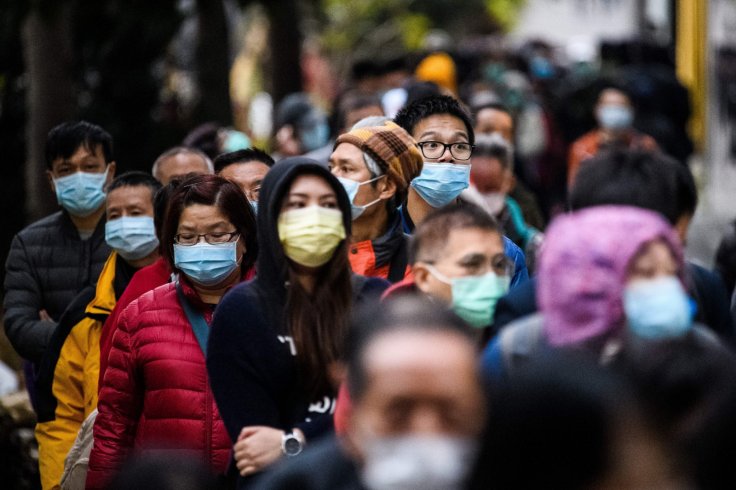A Chinese activist Yang Zhanqing had received a series of messages from Wuhan residents who were seeking help to sue the Chinese government due to the Coronavirus outbreak in the city in which they lost their families and loved ones, as per reports.
One of the residents said his mother died from COVID-19 after being rejected from multiple hospitals in Wuhan, while another claimed that her father-in-law had died in quarantine. But among these people, who reached out to Yang, seven of them suddenly changed their minds in late April or stopped responding. Later, Yang revealed that at least two of them had been threatened by the Chinese police.
Sufferings in have not Wuhan ended yet

As per the reports, the Chinese authorities are suppressing grieving relatives, along with activists for criticising China's Communist Party for what went wrong in the initial epicentre of the Coronavirus outbreak in Wuhan, where COVID-19 killed thousands of people before infecting millions globally.
While lawyers warned Chinese people not to file suit against the Xi Jinping's government, local police started interrogating family members, still mourning for the loss of their loved ones, while people who tried to expose the actual scale of the outbreak, have disappeared. Yang, who is currently living in New York, where he fled after he was allegedly detained for his work in China said:
They are worried that if people defend their rights, the international community will know what the real situation is like in Wuhan and the true experiences of the families there.
The fear over rising criticism
It should be mentioned that this suppression may showcase CCP's fear that any revelation about what these people faced in Wuhan, will undermine the narrative that Chinese authorities saved the country from a devastating situation and contain the Coronavirus crisis. Even censors have deleted reports by Chinese news media which revealed official's early efforts to hide the severity of the outbreak.
Silencing people in China is nothing new. In 1998 when a flood caused devastation in mainland China, CCP has insisted on continuing its longstanding practice – dealing off news of disaster and restricted the broadcast media from reporting negative news. In 2008, when the earthquake hit the country and killed at least 69,000 people from Sichuan province, reports claimed that Chinese officials offered a hefty amount of money to keep the mouth shut of those who lost their children. Later, in 2011, after a deadly train crash in the Chinese city Wenzhou, authorities prevented the relatives from visiting then accident location.
In the recent scenario, three Chinese volunteers involved in Terminus2049- an online project that archived censored news articles about Coronavirus outbreak in China's Wuhan, went missing in Beijing from April.

Chen Kun, whose brother, Chen Mei, is one of the volunteers who disappeared said that "I had previously told him: 'You guys probably face some risk doing this project.' But I didn't know how much," adding that "I had said that maybe he would be summoned by the police for a talk, and they would ask him to take down the site. I didn't think it would be this serious."
Even though Chen could not gather any information about what happened to his brother, after speaking to the relatives of another missing volunteer, Cai Wei, he came to know that Cai and his girlfriend had been detained and accused of "picking quarrels and provoking trouble."
An official at a hospital in Wuhan was removed from his post after he criticized the use of traditional Chinese medicine, promoted by authorities, to treat patients with COVID-19.
However, a civil servant in Yichang, Tan Jun became the first person to publicly attempt to sue Chinese authorities over their response to the outbreak. He accused Hubei province authorities of "concealing and covering up" the true nature of the virus, leading people to "ignore the virus's danger, relax their vigilance and neglect their self-protection," revealed the copy of the complaint shared online. He also asked the government to apologise and it would be published on the front page of the Hubei Daily, a local newspaper.
Here it should be mentioned that even though reports claimed that during the outbreak in China more than 21 million cell phone accounts were cancelled and over 840,000 landlines were closed which triggering an idea that these closed numbers belonged to those people who died due to COVID-19, the Chinese government, as of now, has not given any clarification on this issue.








